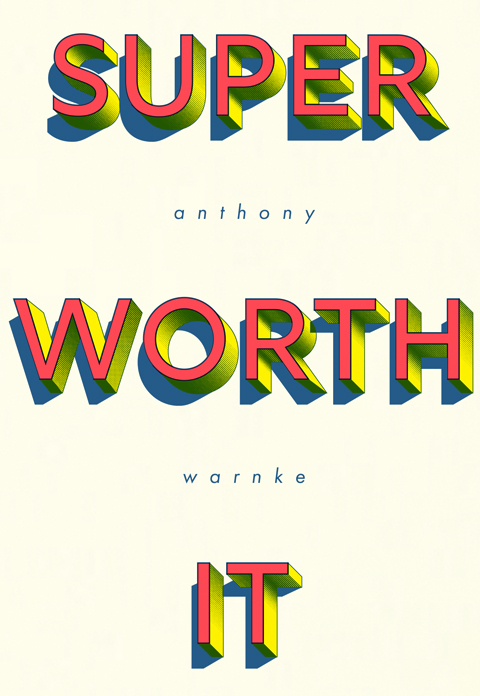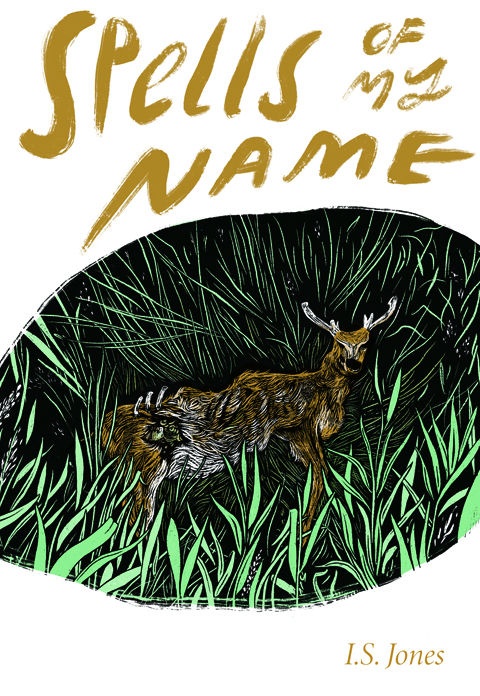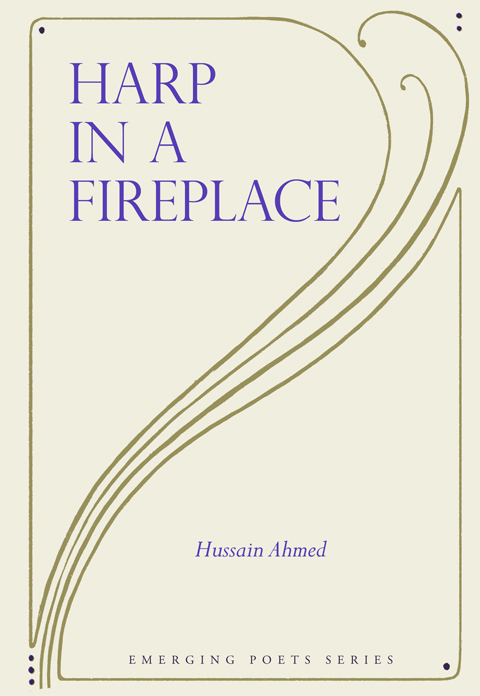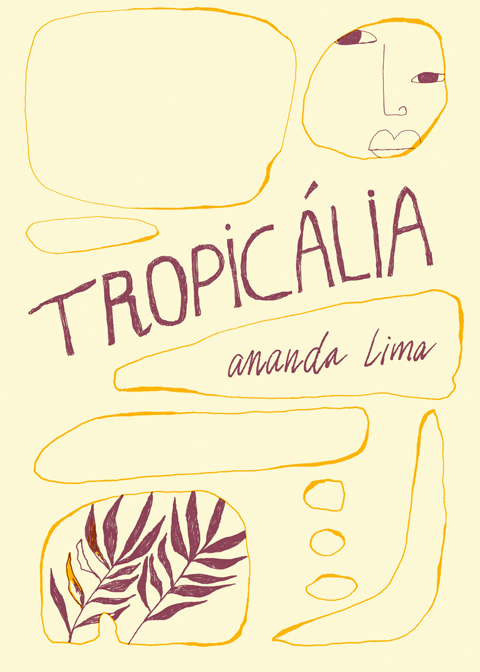


Crystal Odelle
Reviews: Pop Song
Nonfiction: Patrick Loafman
Poetry: Rachel Stempel
Anthony Warnke • Super Worth It • E-book $2.99
Super Worth It • E-book
Summary
With “light blues, dog energy,” Super Worth It embodies the conflicts of the self in late capitalism. Steeped in Anthony Warnke’s working-class upbringing and bourgeois consciousness, these linguistically iridescent poems skip between nursing homes, spin classes, sports bars, and break rooms. In scenes fraught with everyday life, he negotiates achievement, masculinity, consumerism, and family bonds. These poems say funny and occasionally biting things out loud, with tenderness and grief under their breath.
Details
- Selected for the 2021 Emerging Poets Chapbook Series
- Saddle-stitched, risograph cover, 48 pages, 5″ x 7.25″, FSC-certified paper
- Purchase allows three interactive PDF or EPUB downloads
- Order print + e-book
- Order print book only
Praise
“These poems are about class without preaching or easy answers, about capitalism as it feels on the ground and in the gut. The collection begs the question of what the world is actually worth. Warnke gives us vividly concrete and metaphorical tools to answer—all that and more. In a bluntly colloquial voice, deftly phrased and smoothly turning, the poems in this splendid debut unobtrusively sing.”
—Deborah Woodard, author of Borrowed Tales
“Warnke skewers the insipid palliations of American consumer culture in this funny, surreal, and gleefully cynical collection. He writes of the absurdities of the banal with a vicious wit and timing of a stand-up comic. Super Worth It asks what is finally ‘worth it,’ exposing a commodified culture where the only thing ‘redeemed’ might be an online gift card, and where he assures us ‘everything will be okay / if we expand our definition / of everything and okay.’”
—Bruce Beasley
Author
Anthony Warnke’s poetry has appeared in Cimarron Review, North American Review, Salt Hill, Sentence, Sixth Finch, and Sugar House Review, among other journals. He also publishes scholarly work promoting access and equity at two-year colleges. He earned his Master’s degree in English from Western Washington University and is currently enrolled in the MFA program in Creative Writing at the University of Washington, Seattle. He teaches writing at Green River College and lives with his spouse in Seattle, where he co-facilitates the Columbia City Writing Circle.
Artwork
Cover by LK James.
Anthony Warnke • Super Worth It • Print Only $13.99
Super Worth It • Print Only
Summary
With “light blues, dog energy,” Super Worth It embodies the conflicts of the self in late capitalism. Steeped in Anthony Warnke’s working-class upbringing and bourgeois consciousness, these linguistically iridescent poems skip between nursing homes, spin classes, sports bars, and break rooms. In scenes fraught with everyday life, he negotiates achievement, masculinity, consumerism, and family bonds. These poems say funny and occasionally biting things out loud, with tenderness and grief under their breath.
Details
- Selected for the 2021 Emerging Poets Chapbook Series
- Saddle-stitched, risograph cover, 48 pages, 5″ x 7.25″, FSC-certified paper
- Order print + e-book
- Order e-book only
Praise
“These poems are about class without preaching or easy answers, about capitalism as it feels on the ground and in the gut. The collection begs the question of what the world is actually worth. Warnke gives us vividly concrete and metaphorical tools to answer—all that and more. In a bluntly colloquial voice, deftly phrased and smoothly turning, the poems in this splendid debut unobtrusively sing.”
—Deborah Woodard, author of Borrowed Tales
“Warnke skewers the insipid palliations of American consumer culture in this funny, surreal, and gleefully cynical collection. He writes of the absurdities of the banal with a vicious wit and timing of a stand-up comic. Super Worth It asks what is finally ‘worth it,’ exposing a commodified culture where the only thing ‘redeemed’ might be an online gift card, and where he assures us ‘everything will be okay / if we expand our definition / of everything and okay.’”
—Bruce Beasley
Author
Anthony Warnke’s poetry has appeared in Cimarron Review, North American Review, Salt Hill, Sentence, Sixth Finch, and Sugar House Review, among other journals. He also publishes scholarly work promoting access and equity at two-year colleges. He earned his Master’s degree in English from Western Washington University and is currently enrolled in the MFA program in Creative Writing at the University of Washington, Seattle. He teaches writing at Green River College and lives with his spouse in Seattle, where he co-facilitates the Columbia City Writing Circle.
Artwork
Cover by LK James.
Anthony Warnke • Super Worth It • Print + E-book $14.99
Super Worth It • Print + E-book
Summary
With “light blues, dog energy,” Super Worth It embodies the conflicts of the self in late capitalism. Steeped in Anthony Warnke’s working-class upbringing and bourgeois consciousness, these linguistically iridescent poems skip between nursing homes, spin classes, sports bars, and break rooms. In scenes fraught with everyday life, he negotiates achievement, masculinity, consumerism, and family bonds. These poems say funny and occasionally biting things out loud, with tenderness and grief under their breath.
Details
- Selected for the 2021 Emerging Poets Chapbook Series
- Saddle-stitched, risograph cover, 48 pages, 5″ x 7.25″, FSC-certified paper
- Purchase allows three interactive PDF or EPUB downloads
- Order print only
- Order e-book only
Praise
“These poems are about class without preaching or easy answers, about capitalism as it feels on the ground and in the gut. The collection begs the question of what the world is actually worth. Warnke gives us vividly concrete and metaphorical tools to answer—all that and more. In a bluntly colloquial voice, deftly phrased and smoothly turning, the poems in this splendid debut unobtrusively sing.”
—Deborah Woodard, author of Borrowed Tales
“Warnke skewers the insipid palliations of American consumer culture in this funny, surreal, and gleefully cynical collection. He writes of the absurdities of the banal with a vicious wit and timing of a stand-up comic. Super Worth It asks what is finally ‘worth it,’ exposing a commodified culture where the only thing ‘redeemed’ might be an online gift card, and where he assures us ‘everything will be okay / if we expand our definition / of everything and okay.’”
—Bruce Beasley
Author
Anthony Warnke’s poetry has appeared in Cimarron Review, North American Review, Salt Hill, Sentence, Sixth Finch, and Sugar House Review, among other journals. He also publishes scholarly work promoting access and equity at two-year colleges. He earned his Master’s degree in English from Western Washington University and is currently enrolled in the MFA program in Creative Writing at the University of Washington, Seattle. He teaches writing at Green River College and lives with his spouse in Seattle, where he co-facilitates the Columbia City Writing Circle.
Artwork
Cover by LK James.
Interviews: Arden Levine
I.S. Jones • Spells of My Name • Print Only $13.99
Spells of My Name • Print Only
Summary
Spells of my Name speaks to the power of naming as an act of reclamation, making peace with the past to find a window to the future. I.S. Jones is in awe of bodies and opening the body into a new language, probing the micro histories of the heart and asking urgent questions, like: ‘Why do any of us return / to that which has promised to slaughter us?’ Navigating sexuality, memory, and identity is a voice torn into multiple selves. This fracturing is full of diversions and sharp bends—a black fawn that the speaker transforms into as she bounds and leaps between poems while being chased by the faceless hunter. Jones searches for home, a place wherever “memory takes mercy on me.” Spells of My Name is unflinching, confessional, timely, and fluid with grace.
Details
- Selected for the 2021 Emerging Poets Chapbook Series
- Saddle-stitched, risograph cover, 48 pages, 5″ x 7.25″, FSC-certified paper
- Order print + e-book
- Order e-book only
Praise
“In Spells of My Name, I.S. Jones builds a poetics that ‘survives translation’—a lyric force which carves space for the multiplicities of self implicit to her speaker’s being and, in the same breath, insistently casts out every misnaming, every failed imagination thereof, from the sacred fields of these poems. As these questions of language become entangled with questions of landscape, Jones builds a future for the pastoral mode: a necessary reckoning, in conversation with a long lineage of diasporic poets demanding better elsewheres, better language for body, land, and the space between. ‘I want to open the body into a new language,’ writes Jones in her opening poem. Listen. In every arrival, shedding, troubling, beyonding, and transformation of a name, these poems are nothing short of pure magic.”
—George Abraham, author of Birthright (Button Poetry, 2020)
“‘There are so many names I’ve been called / but none belong to me,” I.S. Jones writes. In Spells of My Name, I.S. Jones charts a course to translate the untranslatable—which is to say, to translate oneself. One’s name, one’s being, one’s gods, one’s desires. These poems press forward in exploring, with refined skill. Jones holds a magnifying glass up to every part of themselves, attempting to name, then rename, then name again. In so doing, we’re left with poems complicated and vast, that leave the reader excited for more. This is a poet to watch, a poet to admire, a poet whose truths bring us evermore truth and an ever expanding closeness to self.”
—Fatimah Asghar, author of If They Come for Us
“Imbuing the heaviness of heritage with rhythms of the hunt, I.S. Jones, in this volume, moves us into ‘Fields of selves.’ Through desire and all the animal impulses, through trust and transatlantic traumas, the lyric speakers find themselves on borders of identity, of history and myth, reality and dream, with voices always perched on the edge of soft and sharp. This is a poet for whom language is that spiritual project of self-recognition as ‘fragmented pieces of the Singular.’ Spells of My Name lives in such assurance, and at the same time—because recognition involves naming, and indeed, being named by the world—in the deep, rich shadows of doubt.”
—Logan February, author of In The Nude
“Spells of My Name by I.S. Jones is a collection that viscerally illustrates the life of a third-culture redacted individual in America. To be a Nigerian-American, to be once-removed from one’s homeland into a land that knows nothing of home is an experience that knows a certain violence like no other. I.S.’s words digest the reality of having to swallow multiple names and thus multiple identities, the reality of being continually misspoken for and misrepresented and thus a redacted and piecemeal version of one’s true self. ‘there are so many names i’ve been called/ i said to memory, but none belong to me.’”
—Melissa Ferrer &, review in The Poetry Question
Author
I.S. Jones is an American / Nigerian poet, essayist, and former music journalist. Her honors include fellowships from Callaloo, BOAAT Brooklyn Poets, and elsewhere. Her works have appeared in Guernica, Washington Square Review, Hayden’s Ferry Review, Frontier Poetry, and elsewhere. She is one-third of The Luminaries, an online space which provides free poetry programming and reading events. She is the founder and facilitator of The Singing Bullet: A month-long online poetry workshop.
Artwork
Cover by LK James.
I.S. Jones • Spells of My Name • Print + E-book $14.99
Spells of My Name • Print + E-book
Summary
Spells of my Name speaks to the power of naming as an act of reclamation, making peace with the past to find a window to the future. I.S. Jones is in awe of bodies and opening the body into a new language, probing the micro histories of the heart and asking urgent questions, like: ‘Why do any of us return / to that which has promised to slaughter us?’ Navigating sexuality, memory, and identity is a voice torn into multiple selves. This fracturing is full of diversions and sharp bends—a black fawn that the speaker transforms into as she bounds and leaps between poems while being chased by the faceless hunter. Jones searches for home, a place wherever “memory takes mercy on me.” Spells of My Name is unflinching, confessional, timely, and fluid with grace.
Details
- Selected for the 2021 Emerging Poets Chapbook Series
- Saddle-stitched, risograph cover, 48 pages, 5″ x 7.25″, FSC-certified paper
- Purchase allows three PDF downloads
- Order print only
- Order e-book only
Praise
“In Spells of My Name, I.S. Jones builds a poetics that ‘survives translation’—a lyric force which carves space for the multiplicities of self implicit to her speaker’s being and, in the same breath, insistently casts out every misnaming, every failed imagination thereof, from the sacred fields of these poems. As these questions of language become entangled with questions of landscape, Jones builds a future for the pastoral mode: a necessary reckoning, in conversation with a long lineage of diasporic poets demanding better elsewheres, better language for body, land, and the space between. ‘I want to open the body into a new language,’ writes Jones in her opening poem. Listen. In every arrival, shedding, troubling, beyonding, and transformation of a name, these poems are nothing short of pure magic.”
—George Abraham, author of Birthright (Button Poetry, 2020)
“‘There are so many names I’ve been called / but none belong to me,” I.S. Jones writes. In Spells of My Name, I.S. Jones charts a course to translate the untranslatable—which is to say, to translate oneself. One’s name, one’s being, one’s gods, one’s desires. These poems press forward in exploring, with refined skill. Jones holds a magnifying glass up to every part of themselves, attempting to name, then rename, then name again. In so doing, we’re left with poems complicated and vast, that leave the reader excited for more. This is a poet to watch, a poet to admire, a poet whose truths bring us evermore truth and an ever expanding closeness to self.”
—Fatimah Asghar, author of If They Come for Us
“Imbuing the heaviness of heritage with rhythms of the hunt, I.S. Jones, in this volume, moves us into ‘Fields of selves.’ Through desire and all the animal impulses, through trust and transatlantic traumas, the lyric speakers find themselves on borders of identity, of history and myth, reality and dream, with voices always perched on the edge of soft and sharp. This is a poet for whom language is that spiritual project of self-recognition as ‘fragmented pieces of the Singular.’ Spells of My Name lives in such assurance, and at the same time—because recognition involves naming, and indeed, being named by the world—in the deep, rich shadows of doubt.”
—Logan February, author of In The Nude
“Spells of My Name by I.S. Jones is a collection that viscerally illustrates the life of a third-culture redacted individual in America. To be a Nigerian-American, to be once-removed from one’s homeland into a land that knows nothing of home is an experience that knows a certain violence like no other. I.S.’s words digest the reality of having to swallow multiple names and thus multiple identities, the reality of being continually misspoken for and misrepresented and thus a redacted and piecemeal version of one’s true self. ‘there are so many names i’ve been called/ i said to memory, but none belong to me.’”
—Melissa Ferrer &, review in The Poetry Question
Author
I.S. Jones is an American / Nigerian poet, essayist, and former music journalist. Her honors include fellowships from Callaloo, BOAAT Brooklyn Poets, and elsewhere. Her works have appeared in Guernica, Washington Square Review, Hayden’s Ferry Review, Frontier Poetry, and elsewhere. She is one-third of The Luminaries, an online space which provides free poetry programming and reading events. She is the founder and facilitator of The Singing Bullet: A month-long online poetry workshop.
Artwork
Cover by LK James.
I.S. Jones • Spells of My Name • E-book $2.99
Spells of My Name • E-book
Summary
Spells of my Name speaks to the power of naming as an act of reclamation, making peace with the past to find a window to the future. I.S. Jones is in awe of bodies and opening the body into a new language, probing the micro histories of the heart and asking urgent questions, like: ‘Why do any of us return / to that which has promised to slaughter us?’ Navigating sexuality, memory, and identity is a voice torn into multiple selves. This fracturing is full of diversions and sharp bends—a black fawn that the speaker transforms into as she bounds and leaps between poems while being chased by the faceless hunter. Jones searches for home, a place wherever “memory takes mercy on me.” Spells of My Name is unflinching, confessional, timely, and fluid with grace.
Details
- Selected for the 2021 Emerging Poets Chapbook Series
- Saddle-stitched, risograph cover, 48 pages, 5″ x 7.25″, FSC-certified paper
- Purchase allows three PDF downloads
- Order print + e-book
- Order print book only
Praise
“In Spells of My Name, I.S. Jones builds a poetics that ‘survives translation’—a lyric force which carves space for the multiplicities of self implicit to her speaker’s being and, in the same breath, insistently casts out every misnaming, every failed imagination thereof, from the sacred fields of these poems. As these questions of language become entangled with questions of landscape, Jones builds a future for the pastoral mode: a necessary reckoning, in conversation with a long lineage of diasporic poets demanding better elsewheres, better language for body, land, and the space between. ‘I want to open the body into a new language,’ writes Jones in her opening poem. Listen. In every arrival, shedding, troubling, beyonding, and transformation of a name, these poems are nothing short of pure magic.”
—George Abraham, author of Birthright (Button Poetry, 2020)
“‘There are so many names I’ve been called / but none belong to me,” I.S. Jones writes. In Spells of My Name, I.S. Jones charts a course to translate the untranslatable—which is to say, to translate oneself. One’s name, one’s being, one’s gods, one’s desires. These poems press forward in exploring, with refined skill. Jones holds a magnifying glass up to every part of themselves, attempting to name, then rename, then name again. In so doing, we’re left with poems complicated and vast, that leave the reader excited for more. This is a poet to watch, a poet to admire, a poet whose truths bring us evermore truth and an ever expanding closeness to self.”
—Fatimah Asghar, author of If They Come for Us
“Imbuing the heaviness of heritage with rhythms of the hunt, I.S. Jones, in this volume, moves us into ‘Fields of selves.’ Through desire and all the animal impulses, through trust and transatlantic traumas, the lyric speakers find themselves on borders of identity, of history and myth, reality and dream, with voices always perched on the edge of soft and sharp. This is a poet for whom language is that spiritual project of self-recognition as ‘fragmented pieces of the Singular.’ Spells of My Name lives in such assurance, and at the same time—because recognition involves naming, and indeed, being named by the world—in the deep, rich shadows of doubt.”
—Logan February, author of In The Nude
“Spells of My Name by I.S. Jones is a collection that viscerally illustrates the life of a third-culture redacted individual in America. To be a Nigerian-American, to be once-removed from one’s homeland into a land that knows nothing of home is an experience that knows a certain violence like no other. I.S.’s words digest the reality of having to swallow multiple names and thus multiple identities, the reality of being continually misspoken for and misrepresented and thus a redacted and piecemeal version of one’s true self. ‘there are so many names i’ve been called/ i said to memory, but none belong to me.’”
—Melissa Ferrer &, review in The Poetry Question
Author
I.S. Jones is an American / Nigerian poet, essayist, and former music journalist. Her honors include fellowships from Callaloo, BOAAT Brooklyn Poets, and elsewhere. Her works have appeared in Guernica, Washington Square Review, Hayden’s Ferry Review, Frontier Poetry, and elsewhere. She is one-third of The Luminaries, an online space which provides free poetry programming and reading events. She is the founder and facilitator of The Singing Bullet: A month-long online poetry workshop.
Artwork
Cover by LK James.
Flash: Sarah Fawn Montgomery
Hussain Ahmed • Harp in a Fireplace • Print Only $13.99
Harp in a Fireplace • Print Only
Summary
Harp in a Fireplace is a song of sacrifice and a pledge to a home riddled with grief. Hussain Ahmed’s debut poetry chapbook collages childhood memories with painful moments from a world that pays less attention to the damage it does to itself. His unflinching poems are proof that scars will always remind the wounded of the past they want forgotten. Harp in a Fireplace affirms that reflecting and naming the pains is the first phase to end harm. It reminds us that healing is possible and how long it takes.
Details
- Selected for the 2021 Emerging Poets Chapbook Series
- Saddle-stitched, risograph cover, 36 pages, 5″ x 7.25″, FSC-certified paper
- Order print + e-book
- Order e-book only
Praise
“‘I am sick of the nostalgia that comes with a stale memory,’ Hussain Ahmed writes, and ‘today, history is our enemy,’ in two separate poems where Wi-Fi features in the titles, in configurations as sobering as they are delightful. These modern and ancient juxtapositions are just one aspect of the relief I experienced reading Harp, a collection that brought ideas like ethos, faith, and soul back into my periphery.”
—Tarfia Faizullah, author of Seam and Registers of Illuminated Villages
“Hussain Ahmed’s language resonates with the precision and detail of an earnest artist. A fine blend of history, memory, and spirituality, poems in this volume wax heroic: approaching despair, distance and loss with the certitude of hope. The poet invokes nature in its fullness and precariousness as witness to survival—birds in flight, bodies and geographies out of the hold of old colonies, the ritual of music engraved on human skin. This is a majestic work of an important voice.”
—Naza Amaeze Okoli, editor of African Writer Magazine
Author
Hussain Ahmed is a Nigerian poet and environmentalist. His poems are featured or forthcoming in POETRY, Kenyon Review, Transition Magazine, Waxwing, and elsewhere. He is a 2020 Commended poet for the Troubadour poetry prize, 2020 finalist for the Autumn House Chapbook Prize, and currently an MFA candidate in poetry at the University of Mississippi.
Artwork
Cover by LK James.
Hussain Ahmed • Harp in a Fireplace • E-book $2.99
Harp in a Fireplace • E-book
Summary
Harp in a Fireplace is a song of sacrifice and a pledge to a home riddled with grief. Hussain Ahmed’s debut poetry chapbook collages childhood memories with painful moments from a world that pays less attention to the damage it does to itself. His unflinching poems are proof that scars will always remind the wounded of the past they want forgotten. Harp in a Fireplace affirms that reflecting and naming the pains is the first phase to end harm. It reminds us that healing is possible and how long it takes.
Details
- Selected for the 2021 Emerging Poets Chapbook Series
- Saddle-stitched, risograph cover, 36 pages, 5″ x 7.25″, FSC-certified paper
- Purchase allows three interactive PDF or EPUB downloads
- Order print + e-book
- Order print book only
Praise
“‘I am sick of the nostalgia that comes with a stale memory,’ Hussain Ahmed writes, and ‘today, history is our enemy,’ in two separate poems where Wi-Fi features in the titles, in configurations as sobering as they are delightful. These modern and ancient juxtapositions are just one aspect of the relief I experienced reading Harp, a collection that brought ideas like ethos, faith, and soul back into my periphery.”
—Tarfia Faizullah, author of Seam and Registers of Illuminated Villages
“Hussain Ahmed’s language resonates with the precision and detail of an earnest artist. A fine blend of history, memory, and spirituality, poems in this volume wax heroic: approaching despair, distance and loss with the certitude of hope. The poet invokes nature in its fullness and precariousness as witness to survival—birds in flight, bodies and geographies out of the hold of old colonies, the ritual of music engraved on human skin. This is a majestic work of an important voice.”
—Naza Amaeze Okoli, editor of African Writer Magazine
Author
Hussain Ahmed is a Nigerian poet and environmentalist. His poems are featured or forthcoming in POETRY, Kenyon Review, Transition Magazine, Waxwing, and elsewhere. He is a 2020 Commended poet for the Troubadour poetry prize, 2020 finalist for the Autumn House Chapbook Prize, and currently an MFA candidate in poetry at the University of Mississippi.
Artwork
Cover by LK James.
Hussain Ahmed • Harp in a Fireplace • Print + E-book $14.99
Harp in a Fireplace • Print + E-book
Summary
Harp in a Fireplace is a song of sacrifice and a pledge to a home riddled with grief. Hussain Ahmed’s debut poetry chapbook collages childhood memories with painful moments from a world that pays less attention to the damage it does to itself. His unflinching poems are proof that scars will always remind the wounded of the past they want forgotten. Harp in a Fireplace affirms that reflecting and naming the pains is the first phase to end harm. It reminds us that healing is possible and how long it takes.
Details
- Selected for the 2021 Emerging Poets Chapbook Series
- Saddle-stitched, risograph cover, 36 pages, 5″ x 7.25″, FSC-certified paper
- Purchase allows three interactive PDF or EPUB downloads
- Order print only
- Order e-book only
Praise
“‘I am sick of the nostalgia that comes with a stale memory,’ Hussain Ahmed writes, and ‘today, history is our enemy,’ in two separate poems where Wi-Fi features in the titles, in configurations as sobering as they are delightful. These modern and ancient juxtapositions are just one aspect of the relief I experienced reading Harp, a collection that brought ideas like ethos, faith, and soul back into my periphery.”
—Tarfia Faizullah, author of Seam and Registers of Illuminated Villages
“Hussain Ahmed’s language resonates with the precision and detail of an earnest artist. A fine blend of history, memory, and spirituality, poems in this volume wax heroic: approaching despair, distance and loss with the certitude of hope. The poet invokes nature in its fullness and precariousness as witness to survival—birds in flight, bodies and geographies out of the hold of old colonies, the ritual of music engraved on human skin. This is a majestic work of an important voice.”
—Naza Amaeze Okoli, editor of African Writer Magazine
Author
Hussain Ahmed is a Nigerian poet and environmentalist. His poems are featured or forthcoming in POETRY, Kenyon Review, Transition Magazine, Waxwing, and elsewhere. He is a 2020 Commended poet for the Troubadour poetry prize, 2020 finalist for the Autumn House Chapbook Prize, and currently an MFA candidate in poetry at the University of Mississippi.
Artwork
Cover by LK James.
Reviews: Wound from the Mouth of a Wound
Translation: Distance Between Stones
Ananda Lima • Tropicália • E-book $2.99
Tropicália • E-book
Summary
Devouring Americans from vending machines; longing for rats to greet them in their toilets; waking up not as a Kafkaesque insect, but as an alienated immigrant without a work visa—the characters of this lyrical collection fight for their human needs in absurd circumstances. Spun from 1980s America comedic horror, Carmen Miranda, and the thin metallic plastic of emergency blankets, Tropicália reengages with 20th-century Brazilian art movements (Antropofagia and Tropicalism) from within 21st-century USA. The collection portrays the rich inner worlds of characters who cannot ignore how systemic forces shape their belonging, grief, and love.
Details
- Selected for the 2020 Newfound Prose Prize
- Perfect-bound, risograph cover, 80 pages, 5″ x 7″, FSC-certified paper
- Purchase allows three interactive PDF or EPUB downloads
- Order print + e-book
- Order print book only
Praise
“Smart. Funny. Weird. Bilingual. Timely as hell. Political. Brave. I absolutely loved the pacing, clarity, economy of language, and wild imagination. The way she engages with current events and popular culture in such a reduced space is brilliant.”
—Gabino Iglesias, author of Coyote Songs
“Trippy, eerie, wry, and always profound, Lima achieves what most writers strive for, taking the reader on unexpected but always satisfying journeys while balancing the speculative and the real. Lima’s stories keep you thinking and reading. A gifted poet as well as a fiction writer, she knows how to create worlds that draw you in and leave you wanting more. By every measure, Tropicália marks a marvelous fictional debut.”
—John Keene, author of Counternarratives
“Balancing absurdity, satire, and heart, Lima’s stories are delightfully weird and entertaining, but something ugly, haunting, and important lurks beneath, consuming her protagonists, and, in turn, her readers: the horror of what it means to belong, or not, in America.”
—Necessary Fiction
“Lima’s book demands to be read as America finds itself at a crossroads that will shape the country for generations. For everyone who knows or is an immigrant and the anti-immigration policies of America, Tropicália is a lyrical collection that will resonate for years to come.”
—EcoTheo
Author
Ananda Lima’s work has appeared in Poets.org, Kenyon Review Online, Gulf Coast, Colorado Review, and elsewhere. Her poetry collection Mother/land (Black Lawrence Press, 2021) won the 2020 Hudson Prize. She is also the author of the poetry chapbooks Translation (Paper Nautilus, 2019) and Amblyopia (Bull City Press, 2020). She has an MA in Linguistics from UCLA and an MFA in Creative Writing in Fiction from Rutgers University, Newark.
Artwork
Cover by LK James.
Ananda Lima • Tropicália • Print Only $13.99
Tropicália • Print Only
Summary
Devouring Americans from vending machines; longing for rats to greet them in their toilets; waking up not as a Kafkaesque insect, but as an alienated immigrant without a work visa—the characters of this lyrical collection fight for their human needs in absurd circumstances. Spun from 1980s America comedic horror, Carmen Miranda, and the thin metallic plastic of emergency blankets, Tropicália reengages with 20th-century Brazilian art movements (Antropofagia and Tropicalism) from within 21st-century USA. The collection portrays the rich inner worlds of characters who cannot ignore how systemic forces shape their belonging, grief, and love.
Details
- Selected for the 2020 Newfound Prose Prize
- Perfect-bound, risograph cover, 80 pages, 5″ x 7″, FSC-certified paper
- Order print + e-book
- Order e-book only
Praise
“Smart. Funny. Weird. Bilingual. Timely as hell. Political. Brave. I absolutely loved the pacing, clarity, economy of language, and wild imagination. The way she engages with current events and popular culture in such a reduced space is brilliant.”
—Gabino Iglesias, author of Coyote Songs
“Trippy, eerie, wry, and always profound, Lima achieves what most writers strive for, taking the reader on unexpected but always satisfying journeys while balancing the speculative and the real. Lima’s stories keep you thinking and reading. A gifted poet as well as a fiction writer, she knows how to create worlds that draw you in and leave you wanting more. By every measure, Tropicália marks a marvelous fictional debut.”
—John Keene, author of Counternarratives
“Balancing absurdity, satire, and heart, Lima’s stories are delightfully weird and entertaining, but something ugly, haunting, and important lurks beneath, consuming her protagonists, and, in turn, her readers: the horror of what it means to belong, or not, in America.”
—Necessary Fiction
“Lima’s book demands to be read as America finds itself at a crossroads that will shape the country for generations. For everyone who knows or is an immigrant and the anti-immigration policies of America, Tropicália is a lyrical collection that will resonate for years to come.”
—EcoTheo
Author
Ananda Lima’s work has appeared in Poets.org, Kenyon Review Online, Gulf Coast, Colorado Review, and elsewhere. Her poetry collection Mother/land (Black Lawrence Press, 2021) won the 2020 Hudson Prize. She is also the author of the poetry chapbooks Translation (Paper Nautilus, 2019) and Amblyopia (Bull City Press, 2020). She has an MA in Linguistics from UCLA and an MFA in Creative Writing in Fiction from Rutgers University, Newark.
Artwork
Cover by LK James.
Ananda Lima • Tropicália • Print + E-book $14.99
Tropicália • Print + E-book
Summary
Devouring Americans from vending machines; longing for rats to greet them in their toilets; waking up not as a Kafkaesque insect, but as an alienated immigrant without a work visa—the characters of this lyrical collection fight for their human needs in absurd circumstances. Spun from 1980s America comedic horror, Carmen Miranda, and the thin metallic plastic of emergency blankets, Tropicália reengages with 20th-century Brazilian art movements (Antropofagia and Tropicalism) from within 21st-century USA. The collection portrays the rich inner worlds of characters who cannot ignore how systemic forces shape their belonging, grief, and love.
Details
- Selected for the 2020 Newfound Prose Prize
- Perfect-bound, risograph cover, 80 pages, 5″ x 7″, FSC-certified paper
- Purchase allows three interactive PDF or EPUB downloads
- Order print only
- Order e-book only
Praise
“Smart. Funny. Weird. Bilingual. Timely as hell. Political. Brave. I absolutely loved the pacing, clarity, economy of language, and wild imagination. The way she engages with current events and popular culture in such a reduced space is brilliant.”
—Gabino Iglesias, author of Coyote Songs
“Trippy, eerie, wry, and always profound, Lima achieves what most writers strive for, taking the reader on unexpected but always satisfying journeys while balancing the speculative and the real. Lima’s stories keep you thinking and reading. A gifted poet as well as a fiction writer, she knows how to create worlds that draw you in and leave you wanting more. By every measure, Tropicália marks a marvelous fictional debut.”
—John Keene, author of Counternarratives
“Balancing absurdity, satire, and heart, Lima’s stories are delightfully weird and entertaining, but something ugly, haunting, and important lurks beneath, consuming her protagonists, and, in turn, her readers: the horror of what it means to belong, or not, in America.”
—Necessary Fiction
“Lima’s book demands to be read as America finds itself at a crossroads that will shape the country for generations. For everyone who knows or is an immigrant and the anti-immigration policies of America, Tropicália is a lyrical collection that will resonate for years to come.”
—EcoTheo
Author
Ananda Lima’s work has appeared in Poets.org, Kenyon Review Online, Gulf Coast, Colorado Review, and elsewhere. Her poetry collection Mother/land (Black Lawrence Press, 2021) won the 2020 Hudson Prize. She is also the author of the poetry chapbooks Translation (Paper Nautilus, 2019) and Amblyopia (Bull City Press, 2020). She has an MA in Linguistics from UCLA and an MFA in Creative Writing in Fiction from Rutgers University, Newark.
Artwork
Cover by LK James.




